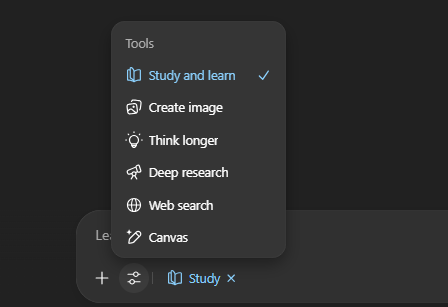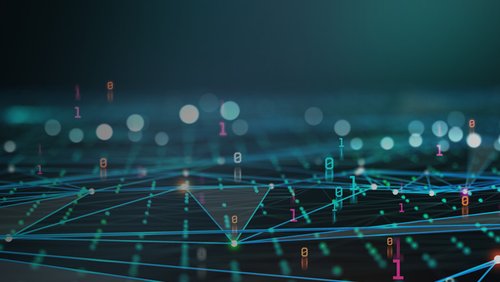6 Aug 2025
AI is continuing to advance rapidly, with July 2025 bringing notable developments both globally and in New Zealand. From new engineering applications and research breakthroughs to industry case studies, policy updates, and emerging tools, here’s what you need to know.
AI New Zealand
Engineering and AI programme – new and improved
Our AI programme landing page has been refreshed with helpful links and resources, including:
- Using AI in professional practice | Engineering NZ
- AI webinars and case studies | Engineering NZ
- AI learning opportunities | Engineering NZ
- Appropriate, safe and ethical use | Engineering NZ
Upcoming webinar
Second AI Panel Q&A – September
Following the success of our first AI Panel Q&A, the second session will focus on how engineering education can evolve to integrate powerful AI tools while still fostering genuine understanding and problem-solving skills. Watch for registration details in our Learning and Events newsletter.
Engineering and AI LinkedIn Group
Our LinkedIn Group is now live and aims to connect engineers and technical professionals who are keen to share ideas, challenges, and practical insights. Whether you’re navigating complex projects, developing technical guidance, or exploring emerging tools and technologies, this will be a space for open, constructive conversation. Join up here.
AI New Zealand trailblazers
- Artificial Intelligence in Engineering Presentation: This presentation from a recent Canterbury Branch of Young Engineers event, showcases how our young engineers are applying AI in areas like infrastructure, design and asset management. This session shares practical examples, tools in use, and lessons from real projects.
- Air New Zealand rolls out custom GPTs for 3,500 staff: Air New Zealand has rolled out more than 1,500 custom GPT tools to 3,500 staff across customer service, maintenance and planning. The programme is underpinned by an internal ethical AI framework.
- Training the next gen flood forecasters University of Canterbury is using AI models to help train the next generation of flood forecasters.
- New Zealand’s first national AI strategy has been launched. This high-level framework supports innovation, investment and skills development, and is accompanied by new Responsible AI guidance for businesses. Here a view on the new strategy from Andrew Lensen a Senior Lecturer in Artificial Intelligence at Victoria University in this RNZ article NZ's new AI strategy is long on 'economic opportunity' but short on managing ethical and social risk | RNZ News.
- Innovation activator: Innovation Activator is an independent initiative recently set up by former Callaghan Innovation staff to support research-led innovation and commercial growth in New Zealand. It offers guidance on areas such as AI, deep tech, advanced manufacturing and clean technology, with a focus on practical support for businesses and researchers. The programme includes workshops, advisory sessions and connections to funding pathways and R&D partners.
- Otago researchers made headlines for their chainsaw drone development automating forestry tasks with AI-guided precision.
- Aotearoa AI Summit 2025 - AI Forum bringing together leaders from industry, government and research to explore the opportunities and challenges of artificial intelligence in New Zealand. A key event for staying informed on national strategy, ethical deployment and sector-specific developments.
AI Global
- AI reveals 86,000 hidden earthquakes in Yellowstone: A new study uses machine learning to analyse seismic data with unprecedented precision. The findings could reshape how scientists monitor volcanic and tectonic activity in geologically active zones.
- AI mimics human decision-making: New research shows how AI can match or even outperform humans on accuracy in complex decisions. This raises new possibilities for AI-assisted systems in fields like healthcare, logistics, and engineering.
- Energy use and AI: Experts continue to debate the real environmental footprint of large language models and other compute-intensive AI tools. As demand grows, pressure is mounting to develop more energy-efficient AI architectures.
- Joint safety statement: Researchers from OpenAI, Anthropic, Meta, and Google have issued a collective warning on risks from advanced AI. Their call for stronger safeguards highlights growing concern around autonomous behaviour and misuse.
- Magnetic innovation poised to revolutionize AI efficiency: A recent report explores how spintronics, technology that controls the magnetic “spin” of electrons, could significantly boost AI computing performance. The world’s largest spin waveguide network demonstrates potential for lower energy use, faster processing, and more efficient AI hardware.
- Augmented AI in engineering disciplines: A growing body of research is exploring how augmented artificial intelligence can enhance, not replace, human expertise in technical fields. The focus in this IEEE article is on tools that support judgment, creativity and complex problem-solving in engineering and science (note IEEE membership is required to read the full article).
- What workers really want from AI: A Stanford HAI study finds that most workers favour AI tools that enhance their productivity and autonomy, rather than replace their roles. The research highlights a clear preference for human-centred AI that supports skill development and meaningful work.
AI tools and software advancements
July saw major strides in AI tools that can boost professional productivity
- Microsoft Copilot desktop vision: A recent update enables Microsoft Copilot to interpret what's on your screen and provide contextual help. This could streamline tasks like reviewing technical drawings or spreadsheets by recognising content and offering suggestions in real time. It marks another step toward more intuitive AI integration into everyday workflows.
- NotebookLM video overview: NotebookLM can now turn source material into narrated slide shows, mixing AI-generated visuals, quotes and data. Helpful for quickly communicating design concepts or summarising large technical reports.
- Microsoft Edge – copilot mode: A new opt-in mode makes Edge an agentic assistant that understands the context of all open tabs and can act on voice or text commands—useful for literature reviews, standards look-ups and multi-site research.
- Google search – AI mode upgrades: AI mode gains Canvas for project planning, live video search, and PDF uploads (with Drive support coming). Engineers can sketch out workflows, ask questions of drawings or specs, and organise research in one place.
- Adobe Photoshop – enhanced generative tools: The July release adds faster object removal, context-aware fill and style transfer powered by Firefly, speeding up preparation of presentation graphics, annotated photos and marketing collateral.
- Genesis: Embodied AI for physical reasoning: The Genesis project showcases progress toward embodied AI that can reason about the physical world like a human child. By integrating vision, language, and physics, the model learns to interpret scenes, predict outcomes, and interact more naturally. This research offers a glimpse at the future of AI in simulation and robotics.
ChatGPT updates – OpenAI has rolled out major upgrades to ChatGPT, including Agent Mode and Study Mode.
- Agent Mode: OpenAI’s new Agent Mode allows ChatGPT to autonomously browse, code and carry out tasks on your behalf. It’s designed to handle complex, multi-step workflows—like research, report drafting or simulation planning—while keeping users in control. This marks a shift from passive assistant to active collaborator.
- Important note: Review this guide The Silent Leap: OpenAI’s New ChatGPT Agent Capabilities and Security Risks before turning on the Agent Mode in a live project, and check out the security implications, including advising using minimum permissions, manual checks on high-stakes actions, and activity logging.
- Study Mode: OpenAI’s new study mode turns ChatGPT into an interactive tutor, guiding you through a problem step by step instead of serving the final answer. It is already available to logged-in users on the Free, Plus, Pro and Team plans. Work through topics such as thermodynamics, structural analysis or control theory at your own pace, handy for upskilling, mentoring and CPD-style refreshers.
Give it a go
Open a fresh chat in ChatGPT, choose study mode from the drop down tools list, and try an engineering prompt such as:
- “Derive the Euler–Bernoulli beam equation step by step.”
- “Walk me through calculating Rankine-cycle efficiency for a 30 bar boiler.”
- “Guide me in tuning a PID controller for a water-level tank.”

ChatGPT will ask questions, offer hints and wait for your input, reinforcing understanding rather than handing over a solution. It’s an effective way to prepare for design reviews, mentor graduates or explore a new discipline.







